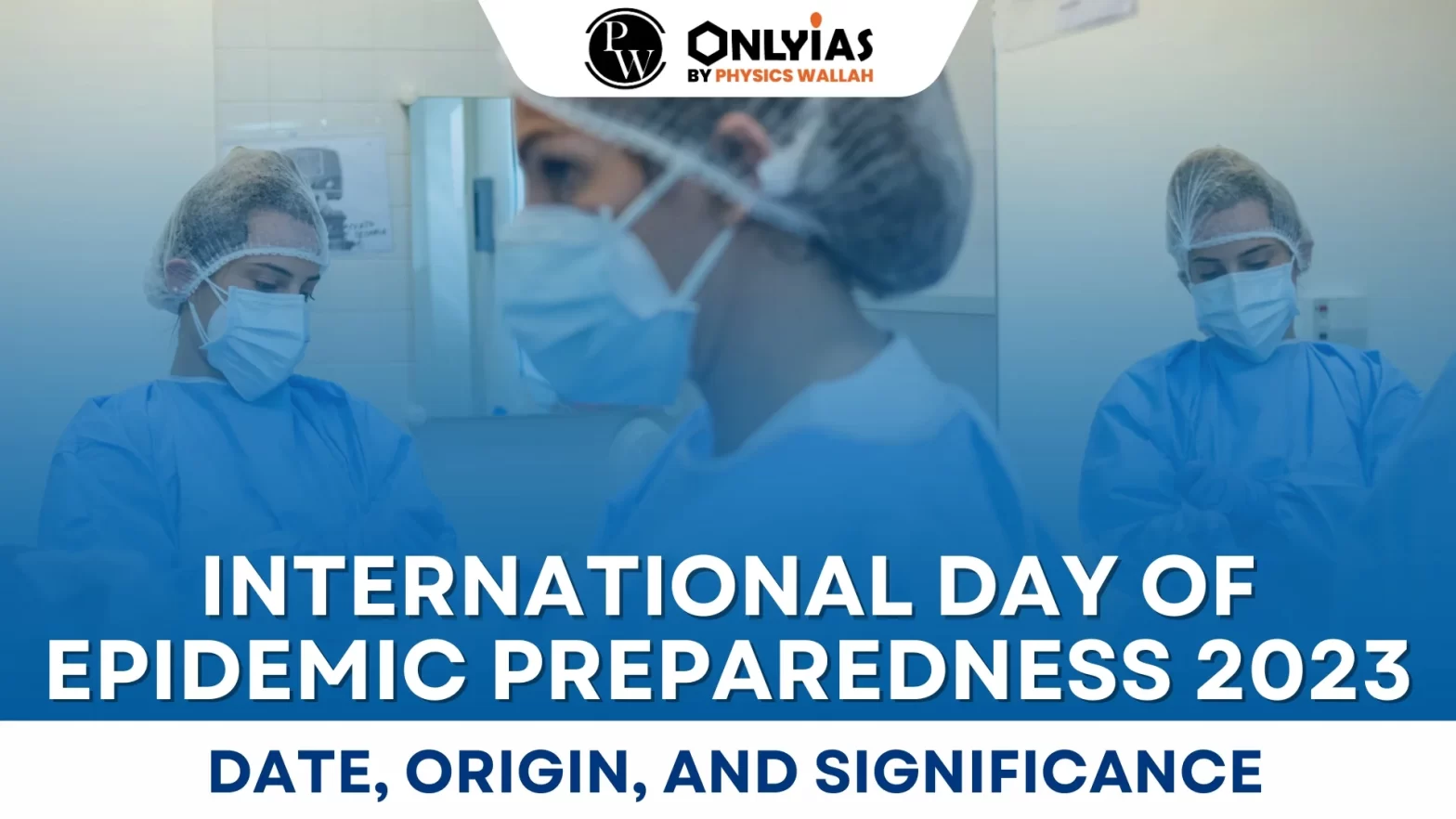The first-ever International Day of Epidemic Preparedness was held on 27 December 2020 to advocate the importance of the prevention of, preparedness for, and partnership against epidemics.

Context: The International Day of Epidemic Preparedness is marked worldwide on December 27.
Global pandemics like Covid-19 have shown how the health system across the world is vulnerable. It is imperative to have resilient and robust health systems, reaching those who are vulnerable or in vulnerable situations.
| Must Read | |
| NCERT Notes For UPSC | UPSC Daily Current Affairs |
| UPSC Blogs | UPSC Daily Editorials |
| Daily Current Affairs Quiz | Daily Main Answer Writing |
| UPSC Mains Previous Year Papers | UPSC Test Series 2024 |
The International Day of Epidemic Preparedness is marked worldwide on December 27.
The first-ever International Day of Epidemic Preparedness was held on 27 December 2020 to advocate the importance of the prevention of, preparedness for, and partnership against epidemics.
The UN General Assembly asked WHO to mark December 27 as the International Day of Epidemic Preparedness to highlight the need for preparedness, cooperation, and epidemic prevention.
Epidemic refers to the rapid spread of disease to a large number of people in a given population within a short span of time.
Epidemic is declared when the rate of infection crosses a certain threshold of disease prevalence. The threshold varies for different diseases.
One Health is the method of balancing and optimizing the health of people, animals, and ecosystems to tackle health issues at local, regional, national, and global levels.
World Health Organization (WHO) is a specialized agency of the United Nations (UN) established in 1948. WHO is the first global health organization established in 1948, replacing many regional and national health bodies.
WHO’s functions include epidemic control, quarantine measures, and drug standardization.

<div class="new-fform">
</div>